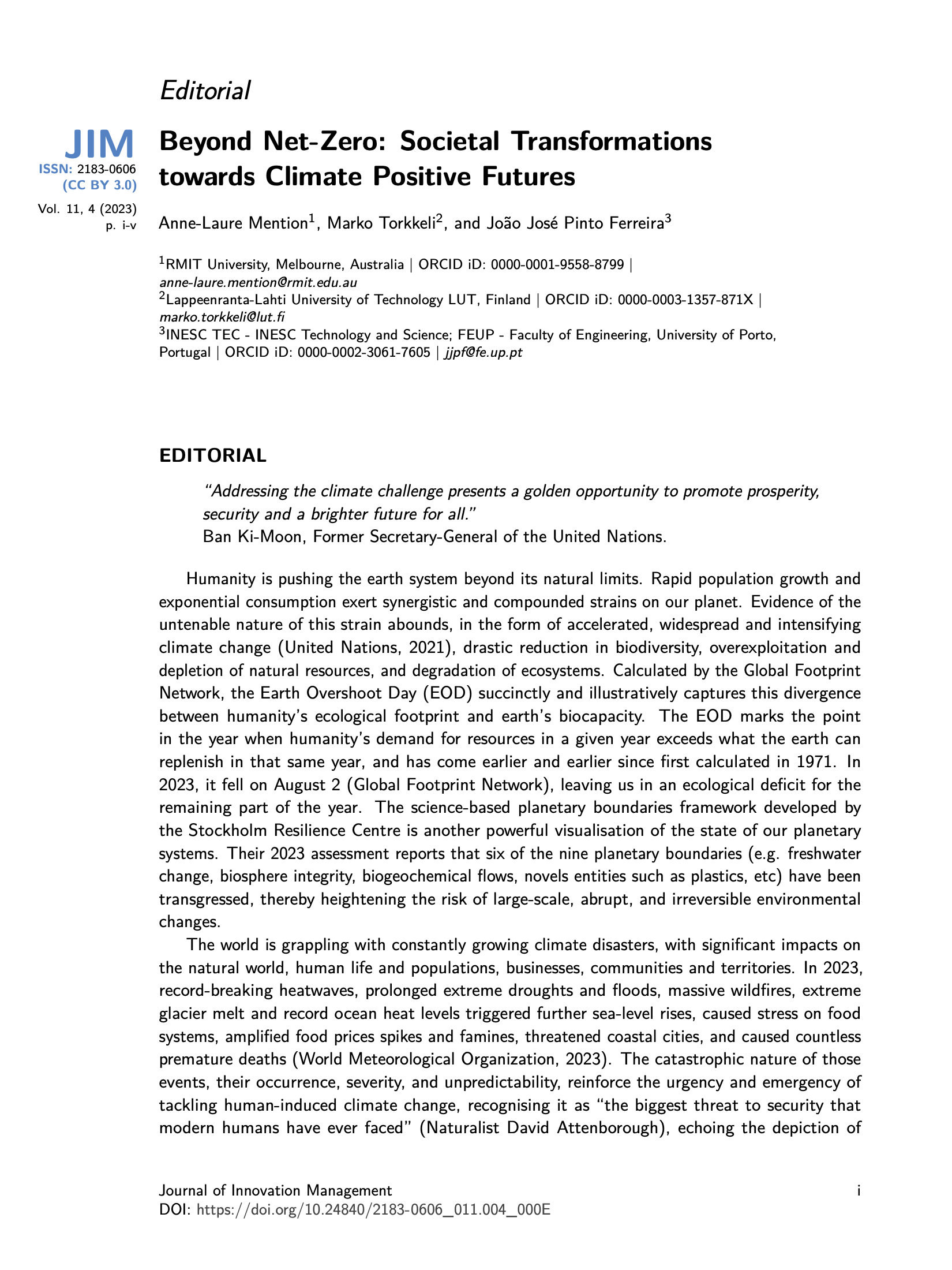Beyond Net-Zero: Societal Transformations towards Climate Positive Futures
Main Article Content
Abstract
“Addressing the climate challenge presents a golden opportunity to promote prosperity, security and a brighter future for all.”
Ban Ki-Moon, Former Secretary-General of the United Nations.
Humanity is pushing the earth system beyond its natural limits. Rapid population growth and exponential consumption exert synergistic and compounded strains on our planet. Evidence of the untenable nature of this strain abounds, in the form of accelerated, widespread and intensifying climate change (United Nations, 2021), drastic reduction in biodiversity, overexploitation and depletion of natural resources, and degradation of ecosystems. Calculated by the Global Footprint Network, the Earth Overshoot Day (EOD) succinctly and illustratively captures this divergence between humanity’s ecological footprint and earth’s biocapacity. The EOD marks the point in the year when humanity’s demand for resources in a given year exceeds what the earth can replenish in that same year, and has come earlier and earlier since first calculated in 1971. In 2023, it fell on August 2 (Global Footprint Network), leaving us in an ecological deficit for the remaining part of the year. The science-based planetary boundaries framework developed by the Stockholm Resilience Centre is another powerful visualisation of the state of our planetary systems. Their 2023 assessment reports that six of the nine planetary boundaries (e.g. freshwater change, biosphere integrity, biogeochemical flows, novels entities such as plastics, etc) have been transgressed, thereby heightening the risk of large-scale, abrupt, and irreversible environmental changes. (continued...)
Article Details
Authors who publish with this journal agree to the following terms:
- Authors retain copyright and grant the journal right of first publication with the work simultaneously licensed under a Creative Commons Attribution License that allows others to share the work with an acknowledgement of the work's authorship and initial publication in this journal.
- Authors are able to enter into separate, additional contractual arrangements for the non-exclusive distribution of the journal's published version of the work (e.g., post it to an institutional repository or publish it in a book), with an acknowledgement of its initial publication in this journal.
- Authors are permitted and encouraged to post their work online (e.g., in institutional repositories or on their website) prior to and during the submission process, as it can lead to productive exchanges, as well as earlier and greater citation of published work (See The Effect of Open Access).

